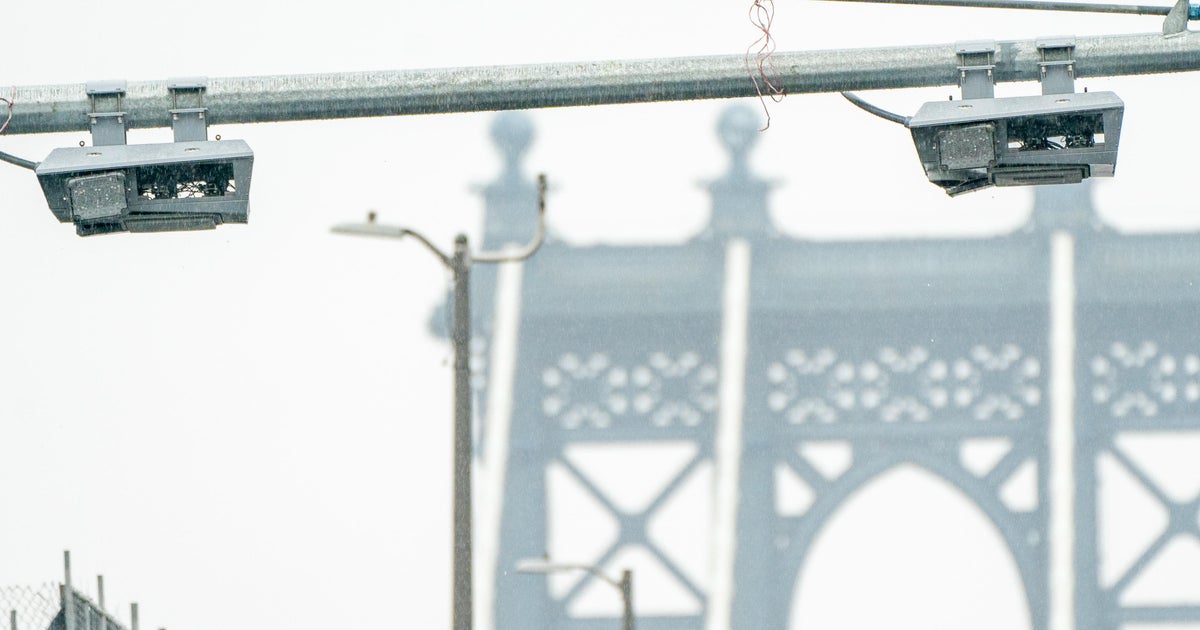Elsa's Impact: Subway Riders Raise Concerns After Video Showed Station Flooded By Waist-Deep Water
NEW YORK (CBSNewYork) -- From water streaming into the subways to drivers left stranded in rising flood waters, Elsa caused a mess for commuters in New York City.
CBS2's Jenna DeAngelis returned to the trouble spots Friday to find out what's being done to prevent this from happening again.
RELATED STORY: Elsa's Impact: Visitors Return To Long Beach After Storm's Relentless Rain, Wind Leave Long Island
What a difference a day made for commuters entering the 157th Street subway station.
On Thursday, commuters waded through waist deep water while heavy rain pounded the city.
"It was crazy. I came from the train, there was water everywhere," Joshua Vasquez told DeAngelis.
Riders said they're seriously concerned about the conditions of the subway station. They say concaving concrete is a problem.
"Please fix your stations," said Michael James of the Bronx.
"This is nothing new and I can't believe how many administrations have come through here... and never addressed anything having to do with the flooding," said Washington Heights resident Joanne Malcy.
Watch Jenna DeAngelis' report --
On Thursday, the MTA said it saw issues where it typically doesn't see tremendous flooding, noting, "a huge amount of rain in a short amount of time."
"The concrete above ground does not absorb the water. The water comes through the vents, down the stairs in those waterfalls, and then if the drains at the street level can't handle the water, it goes over the curb and then makes things even worse," said Interim NYC Transit President Sarah Feinberg.
"Really tough time for customers who were in those stations or trying to go to those stations at the height of the storm," she added.
The MTA said it's conducting an after action report and, Friday evening, sent the following statement to CBS2:
New York City sustained record breaking amounts of rainfall in a short amount of time, resulting in flash flooding of roads and sidewalks, which in turn resulted in water pouring into some subway stations. In a few stations, water exceeded the capacity of drains, generally only for a period of minutes. Despite the large amount of rain, our drains, pumping equipment, and the system as a whole performed well, and thanks to pre-positioned crews followed by rapid response of skilled maintenance teams who worked through the night, disruption to service was minimal through the back-to-back storms that pounded the city Thursday afternoon and Friday morning.
RELATED STORY: Elsa's Impact: Storm Packs Punch, Strands Drivers, Causes Floods And Mudslide In Connecticut
The Department of Environmental Protection released the following statement:
"Yesterday's intense storms caused flooding in rural, suburban and urban areas of the metropolitan region - New Jersey, Connecticut and New York City. Particularly hard hit were portions of upper Manhattan and the West Bronx where more than five inches of rain fell - that volume of water in a short time period will overwhelm drainage systems."
Ahead of the storm, crews were inspecting catch basins in critical areas which often get clogged with litter, the department said on Twitter.
Over the past several years, thousands of curbside rain gardens were built to help with drainage.
"I would say that New York City is one of the most advanced cities in the country in planning for what's to come with climate change," said Jennifer Cherrier, chair of Earth & Environmental Sciences at Brooklyn College.
Cherrier is among the academic experts tasked in 2017 to analyze the impact of extreme rain events. Their research is crucial to the city's new Stormwater Resiliency Plan.
RELATED STORY: Elsa's Impact: Storm Passes Jersey Shore, But Swimming Still Off Limits At Sea Bright Beach
"In the plan, the city has generated a series of maps that can show residents different areas that are vulnerable," Cherrier said. "They actually outlined different strategies that New York City residents could do to protect their property."
- Click here to view New York City Stormwater Flood Maps.
Some New Yorkers couldn't even escape Thursday's rain inside their own homes.
Water gushed into a residential building in Gramercy Park in the stairwell and in the apartment where Amelia Page was working from home.
"Like, I work in my room," she said. "I can't answer calls in there. I can't do emails or anything."
Meanwhile, sources with the MTA told CBS2's Nick Caloway only a few stations had significant water issues on Thursday and that only four stations lost service during the storm.
CBS2's Nick Caloway contributed to this report.



